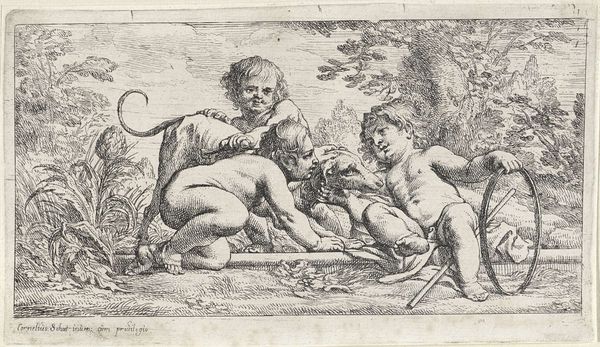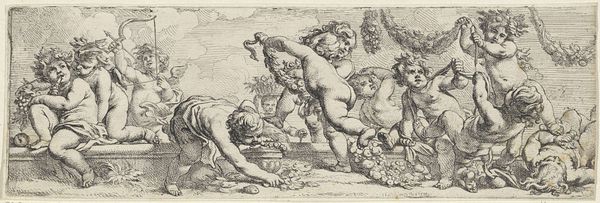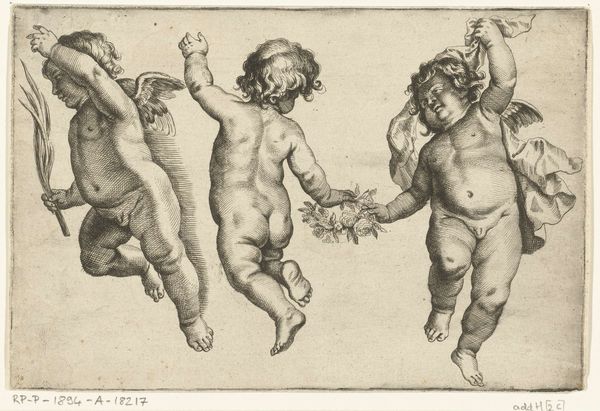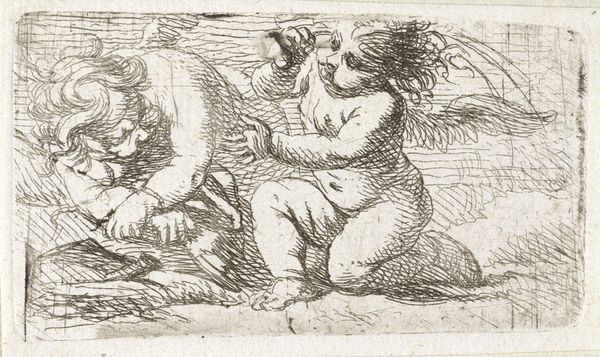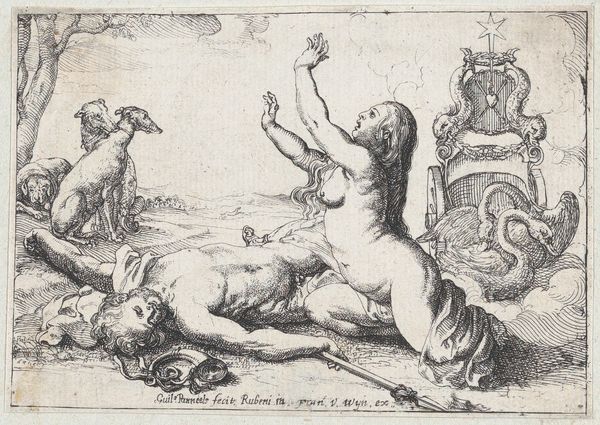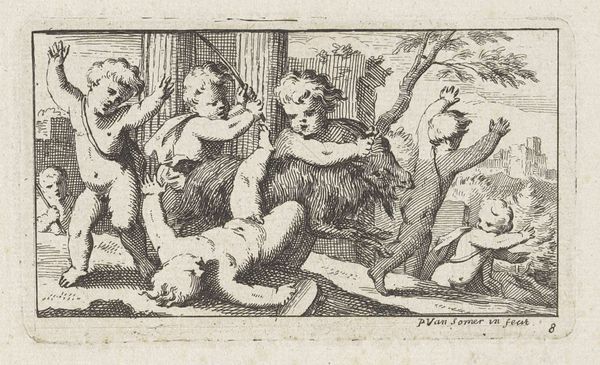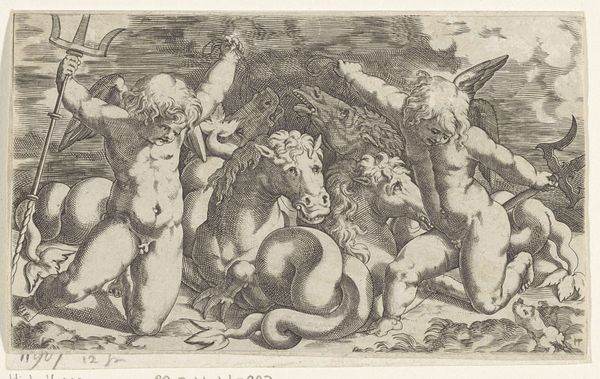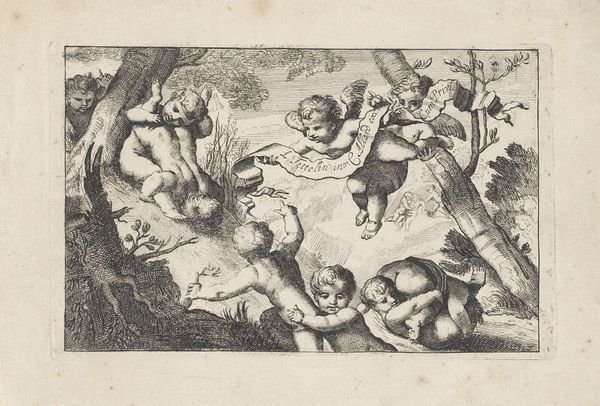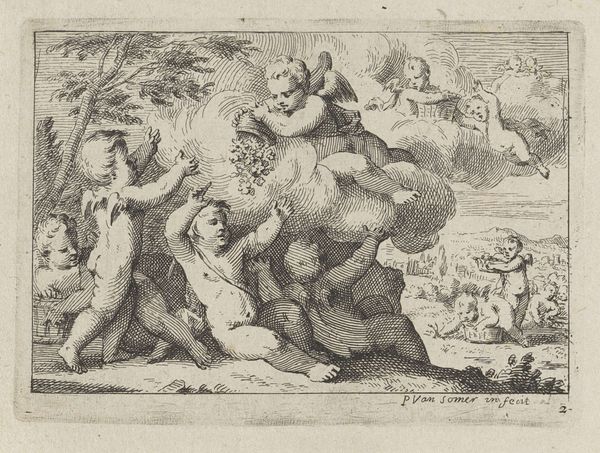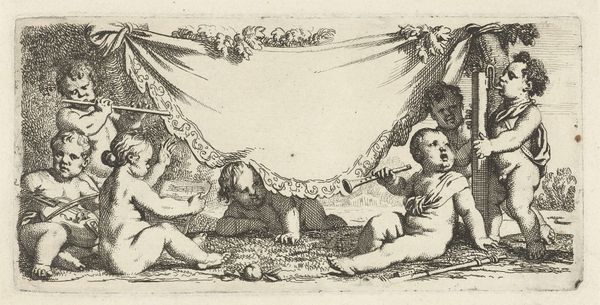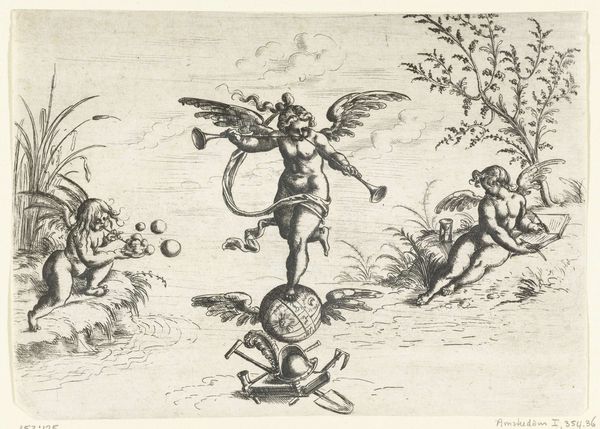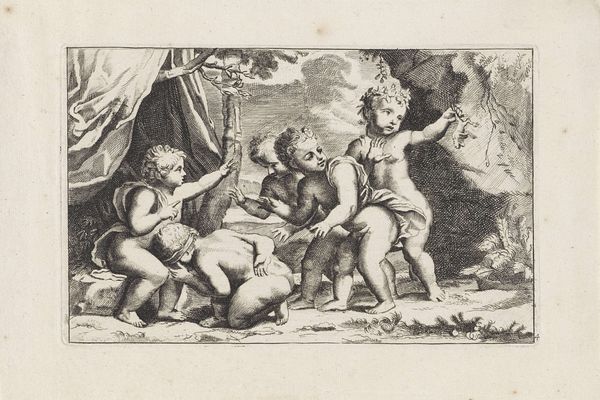
drawing, ink, engraving
#
drawing
#
baroque
#
pen illustration
#
pen sketch
#
pencil sketch
#
landscape
#
fantasy-art
#
figuration
#
personal sketchbook
#
ink
#
ink drawing experimentation
#
pen-ink sketch
#
pen work
#
sketchbook drawing
#
engraving
#
fantasy sketch
#
initial sketch
Dimensions: height 40 mm, width 121 mm
Copyright: Rijks Museum: Open Domain
Editor: Here we have Jan van Vianen's "Dansende jonge saters," created in 1701. It’s an ink drawing of frolicking satyrs... the overall composition feels surprisingly joyful, like a glimpse into a hidden revelry. What strikes you about this piece? Curator: This piece, for me, speaks to the historical and social contexts shaping our understanding of identity and pleasure. Think about the satyr – a creature of myth, part human, part animal – embodying untamed desires and freedom from societal constraints. Van Vianen created this drawing in the early 1700's... how does situating the work within that time period impact your interpretation? Editor: Well, knowing it's from the Baroque era makes me think about the emphasis on drama and emotion. Maybe the artist was exploring themes of freedom through these mythical figures, at a time when social rules were very strict? Curator: Precisely! This gets at the complex relationship between art and social norms. By representing figures outside of the traditional social structure, the work seems to comment on these societal expectations themselves. I wonder, do you see the depiction of these figures as an act of resistance? How might this work reflect power dynamics within that era? Editor: I never thought about it that way, as a form of resistance...more like a form of escapism perhaps, offering an alternative world through art. Now I am curious, what power does the artist have, if any, to shape political thinking by expressing these fantastical images? Curator: Exactly, consider what we see. We interpret through our own historical lens. Even fantasy art is always engaged with real-world discourse. The pleasure and escape it offers is deeply connected to our understanding of norms, power, and the human condition. Editor: It’s fascinating to consider the deeper layers beneath the surface of such a seemingly light-hearted drawing! Curator: Indeed. Art invites us to continuously reassess and understand our own biases, prompting dialogue between art, culture, and ourselves.
Comments
No comments
Be the first to comment and join the conversation on the ultimate creative platform.
